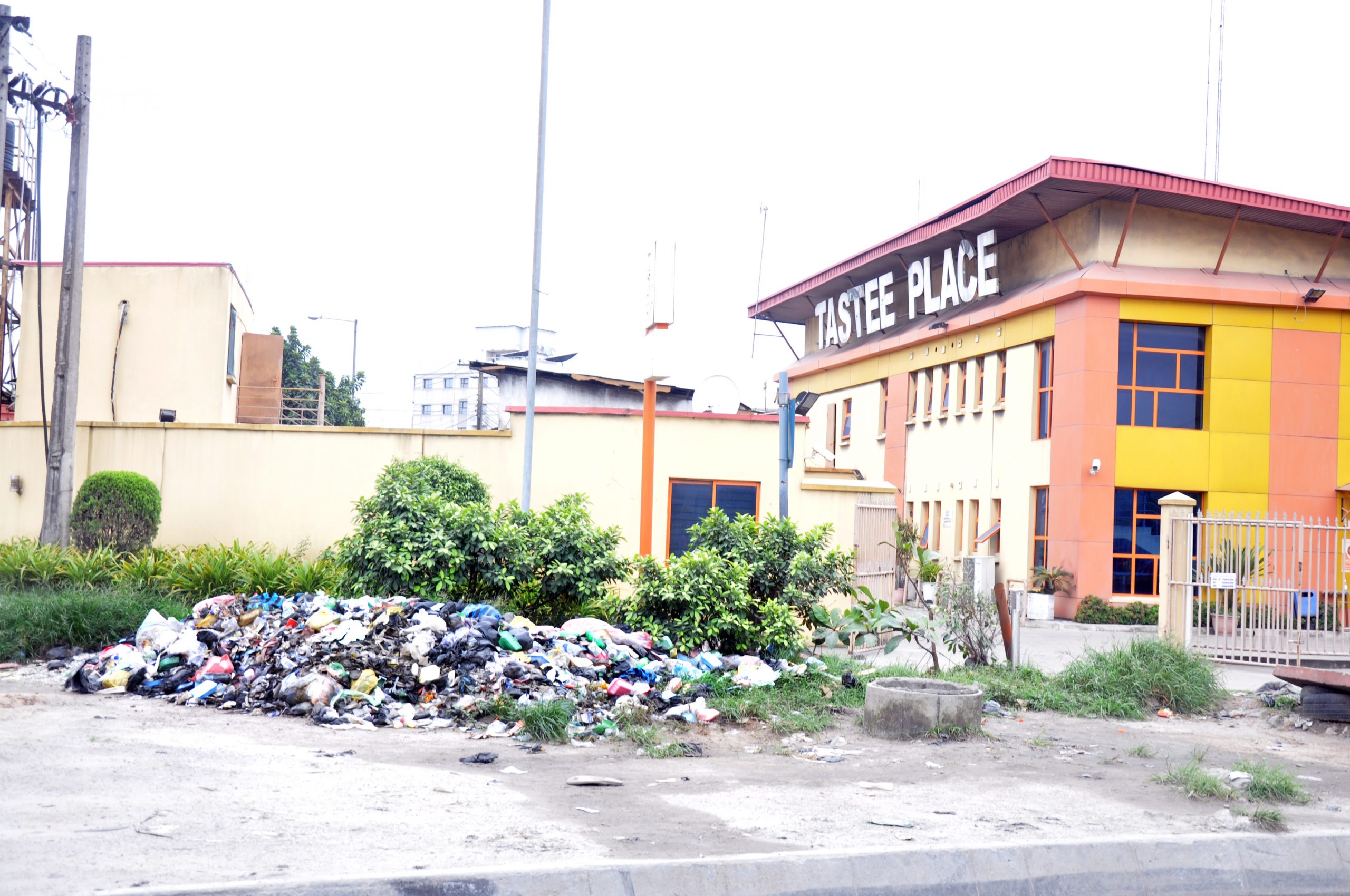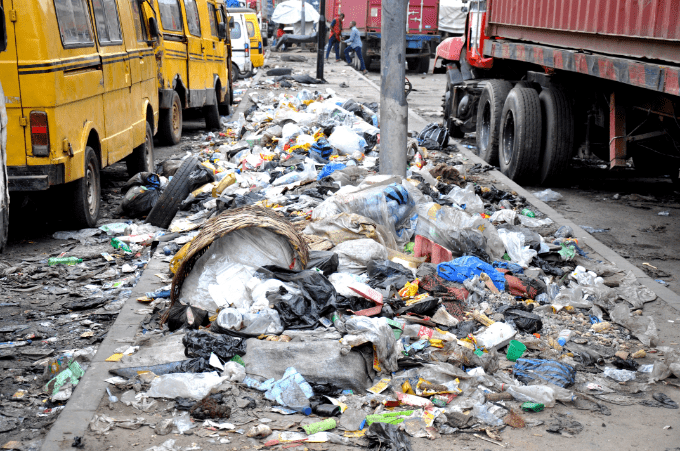Apapa, the once pristine port city that housed the nation’s colonial masters and their Nigerian successors in government, has become a ghost of its former self. Apart from the perennial traffic gridlock for which the city has been known the world over for several decades now, its environment has been badly polluted, and its landscape defaced by refuse heaps.
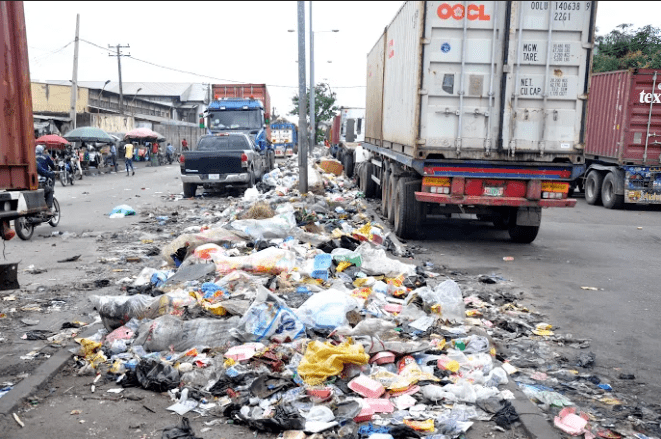
Heaps of refuse that started surfacing on the city’s roads and streets several years ago have now taken over the entire city, posing a clear and present danger to people’s lives. As a matter of fact, almost every street in the port city has become a dumpsite. The port access roads, as bad as they are, now have to share their lanes with refuse, which occupy substantial portion, and sometimes take up the entire space. In some streets, vehicular and pedestrian movement has become almost impossible, having been blocked by refuse and wastes.
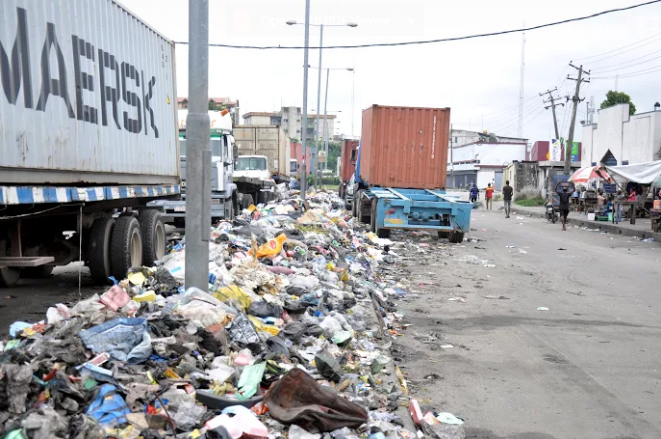
In fact, the ubiquitous refuse heaps have become the latest threat to Apapa, with the avoidable consequences looming large on the horizon. In the face of all these, nobody seems to care as the concerned authorities appear helpless or have decided to turn a blind eye to the looming disaster.
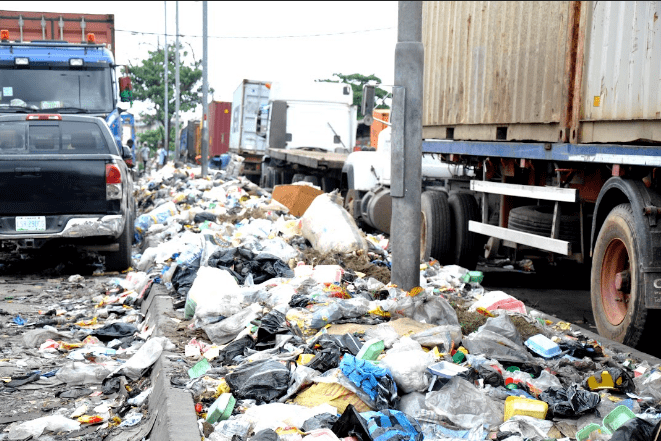
Sadly, major roads such as the ever-busy Wharf Road, Liverpool Road, Point Road, Creek Road and Burma Road have been turned to garbage dumps and truck parks. The main gate of Apapa Port is not spared, as the refuse heaps that line the length of Wharf Road and Creek road start from the port gate.
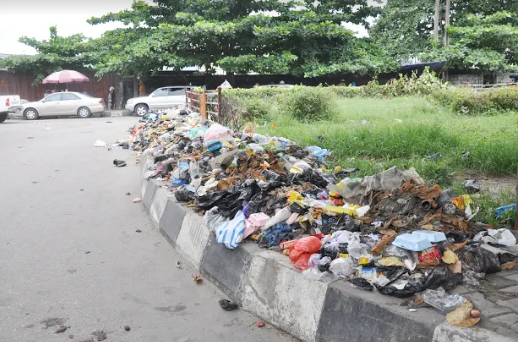
The situation is further exacerbated by the truck drivers who ‘live’ inside and under their trucks because of the endless traffic gridlock. They spend days and weeks there in a bid to enter the port or exit Apapa. Consequently, they convert the nearby refuse heaps and their immediate surroundings to toilets and bathrooms. The result is that everywhere stinks.

This is worsened by the rains that help to quicken the decomposition of these rubbish and human wastes, washing them down to every nook and cranny of the port city. The stench is such that one cannot walk down any street in Apapa now without covering one’s nose. Despite the heavy stench, food vendors and traders sit by the sides of the refuse heaps to do their business. Of course, they are patronized by people who sit at the long benches to eat and drink, pretending to be oblivious of the health hazards around them or those, like the truck drivers and their ‘motor boys’, who have resigned themselves to fate.
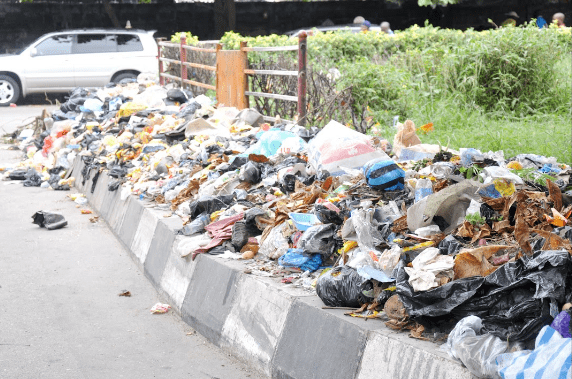
It beats one’s imagination that in the face of a looming epidemic in Apapa, no one seems to be taking responsibility for clearing the refuse. Officials of the Lagos Waste Management Auhtority (LAWMA) and the Apapa Local Government often decline to talk about the poor sanitation of Apapa, let alone taking any action to clear the refuse. Like the intractable traffic gridlock, it appears everyone has thrown in the towel waiting for divine intervention.
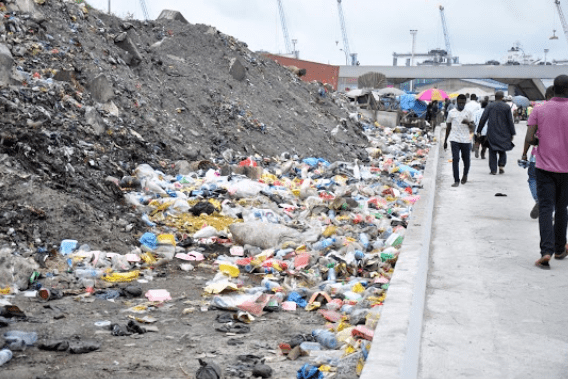
In October last year, worried by the worsening sanitation of the port city, APM Terminals had to intervene as part of its Corporate Social Responsibility. As part of its 2019 “Go Green Campaign” aimed at creating awareness on environmental degradation and encouraging sustainable waste disposal practices, the company partnered with LAWMA to clear the mounting refuse heaps gradually enveloping Apapa.
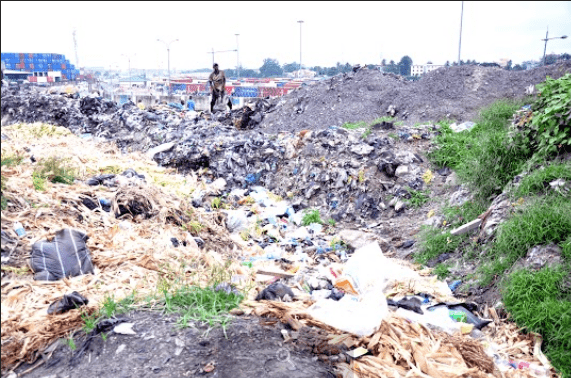
The flag-off of the clean-up campaign was witnessed by the Chairman of Apapa Local Government, the Port Manager of Apapa Port and the Customs Area Controller of Apapa Customs Command and other stakeholders. At the event, the need to sustain a clean port environment was emphasized by all, including sensitizing truck drivers and their motor boys and all inhabitants of Apapa against indiscriminate dumping of refuse.
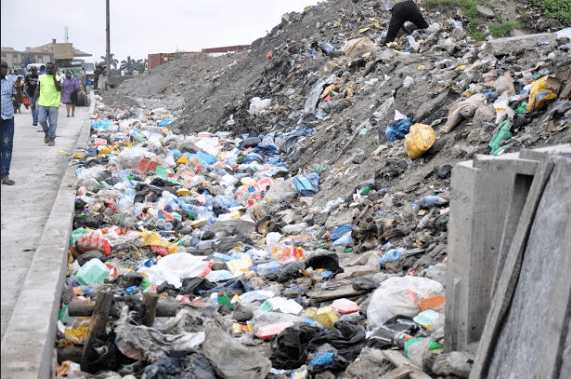
Unfortunately, despite all the nice words spoken by LAWMA and other government functionaries, and the pledges made at that event by these agencies, nothing visible has been done by them since then to ensure the sustainability of the laudable initiative and the cleanness of the Apapa environment. Instead, things have gone from bad to worse, and now worst as the number of refuse dumps have increased significantly in proportion to the fear of an impending epidemic.
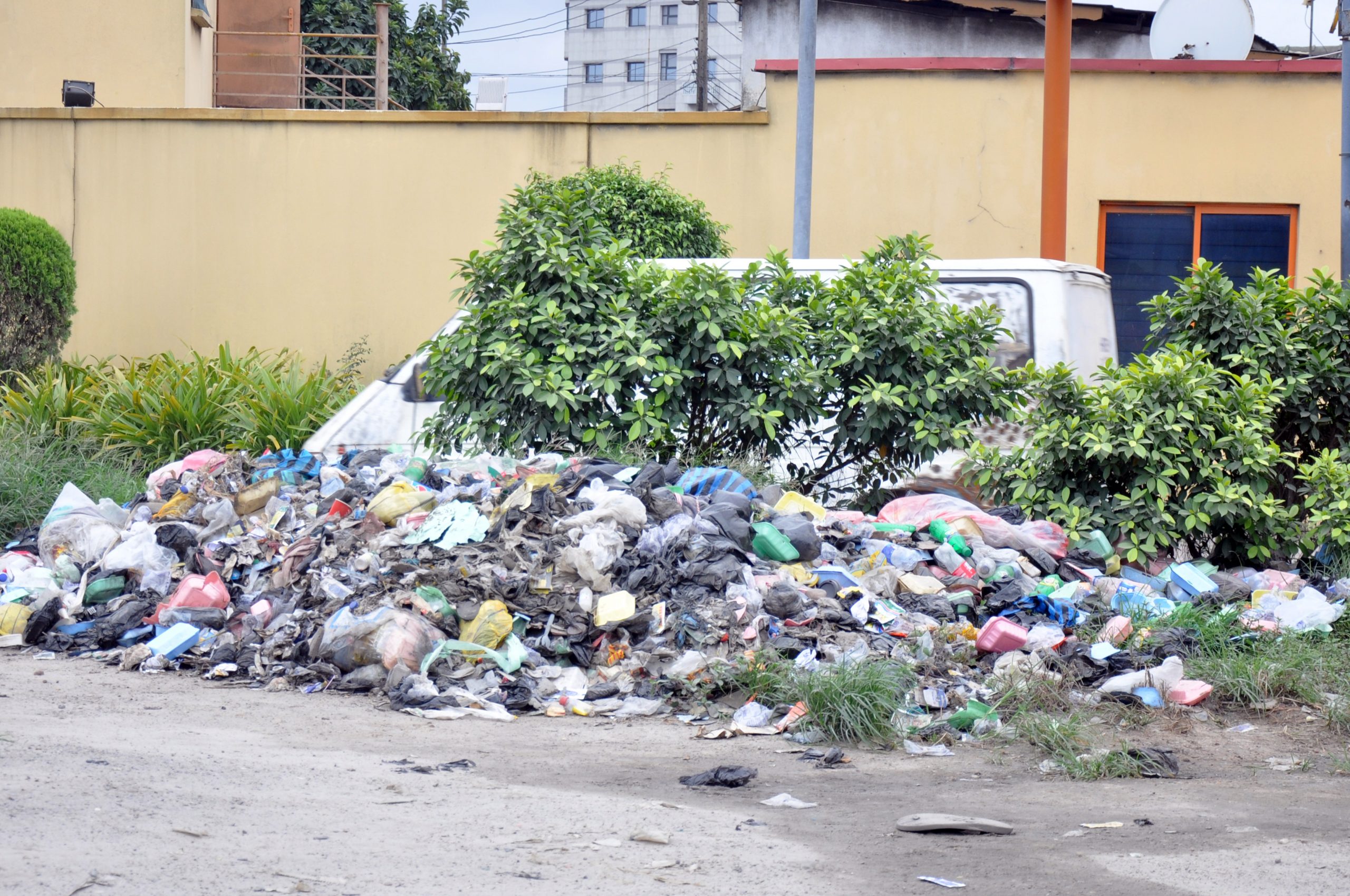
Without any fear of contradiction, the evacuation and disposal of refuse is the responsibility of the local government and LAWMA). This responsibility cannot be shirked. While the government authorities can enlist the support or assistance of stakeholders, they cannot depend on them to do their job. It is the responsibility of government to provide a conducive environment for businesses to thrive, and that includes ensuring a clean and healthy environment. No one expects the Nigerian Ports Authority (NPA), port terminal operators, shipping companies or other stakeholders to take responsibility for refuse disposal in Apapa. Even though they can help as part of their CSR or the understanding that whoever wants a clean environment must contribute to it, the onus lies on the government to provide a clean environment for the people.
LAWMA and the Apapa Local Government must therefore take up their responsibility of clearing the mounting refuse dumps in Apapa and its environs and ensure the sustenance of a clean environment. They cannot continue to wait between them who will take the initiative while the putrefying refuse takes over Apapa, or wait till there is an outbreak of epidemic.
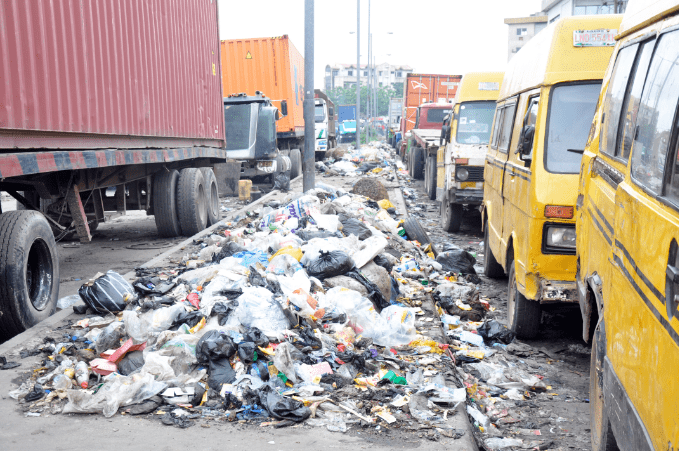
Indeed, the sanitary condition of Apapa has reached a crisis point that if nothing is done now, the consequences may be so dire. A stitch in time, they say, saves nine.
